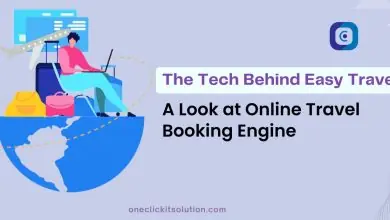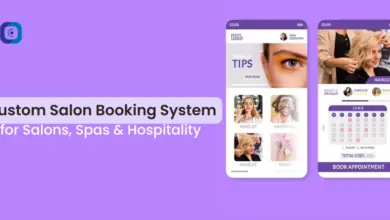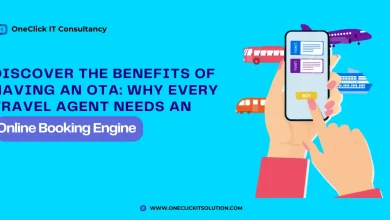The Role of AI in Modern Hotel Booking Engines
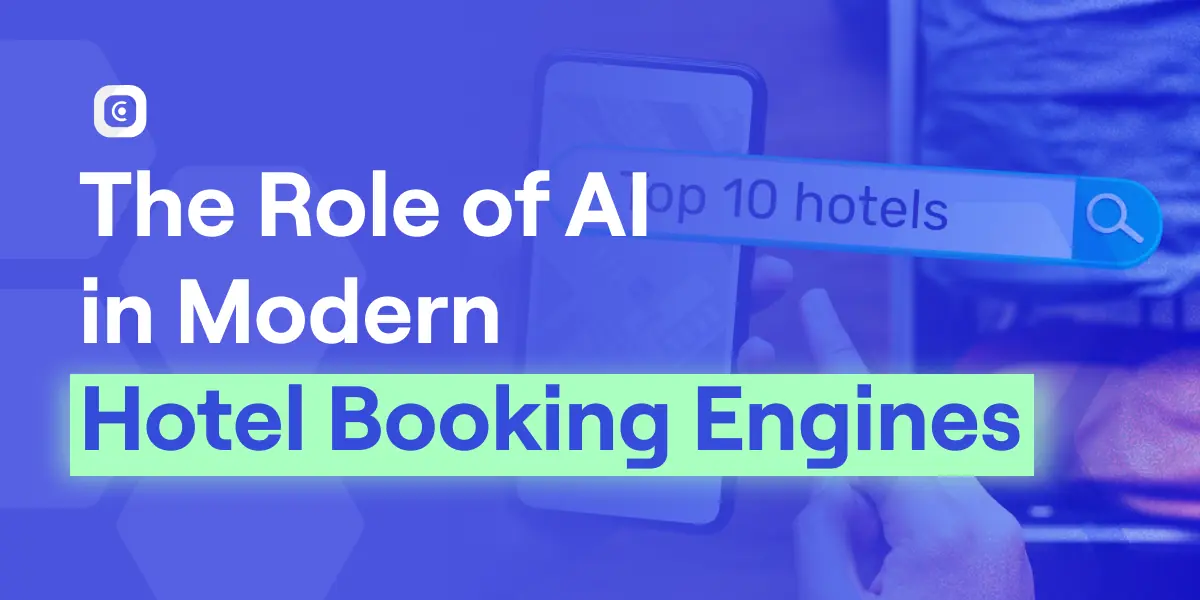
Gone are the days when customers made peace with traditional hotel booking engines. Today, AI in hotel booking engines is not only redefining how hotels deliver personalized experiences and streamline operations but is also driving a broader digital transformation in the hospitality industry—enabling OTAs, travel agencies, tour operators, and B2B/B2C businesses to offer hyper-personalized services, real-time responses, and seamless operations.
Now this is just the tip of the iceberg, as many more factors help travel companies provide such an exceptional service, and artificial intelligence is at the heart of this evolution. This blog will help you understand the role of AI in modern hotel booking engines and how it can help companies set new benchmarks for guest satisfaction while improving business efficiency.
What is AI in the Hospitality Industry?
The term artificial intelligence (AI) is a vast concept, even when it comes to hotel booking engines. However, at the gist of it, this technology utilizes a well-balanced approach of machine learning (ML), natural language processing (NLP), predictive analytics, and computer vision to automate, optimize, and enhance various hotel functions.
But one question remains: Is it actually worth it? The answer is simple, these technologies empower hotels to predict customer behavior, manage inventory, personalize interactions, and improve operational workflows. Simply put, AI in the hospitality industry not only helps businesses understand their customer needs but also improves operational efficiency and profitability.
How AI is Shaping the Hospitality Industry
Artificial intelligence in hotels is influencing the hospitality industry in several impactful ways:
- Personalization at Scale: Enrich your customers with the best possible experience by analyzing their needs, preferences, and past bookings.
- Real-Time Assistance: Solve customer queries without any human intervention, using virtual assistants and chatbots trained to converse in multiple native languages.
- Smart Inventory & Pricing: Provide the best rates for the hotel listed on the booking engine based on real-time based on market trends and competitor pricing.
- Big Data: Focus on what’s important without having to worry about redundant tasks like complex data analysis that consume a lot of time.
- Operational Automation: Streamline your operation by automating scheduling, housekeeping, and energy usage optimization to enhance user experience.
7 Advantages of Hotel Artificial Intelligence
Let’s dig deeper into understanding the role of AI in the hospitality industry by discussing some of its advantages for every hotel booking software.
1. Enhanced Revenue through Smart Pricing
Managing operations becomes smoother when features like dynamic pricing come into play. With the help of smart pricing tools, hotels can track real-time market trends and demand patterns to adjust room rates accordingly. This not only helps increase revenue but also keeps occupancy levels balanced. Whether it’s the busy season or a quieter time of year, hotel booking platforms can stay competitive and profitable with less guesswork.
2. Streamlined Operations
Some routine tasks take up far more time and manpower than they should, eventually impacting the hotel’s revenue and team productivity. That’s where AI steps in. Automating activities like check-ins, room cleaning schedules, and room service requests not only lightens the load on hotel staff but also ensures faster service for guests. The result? Happier guests, fewer errors, and better cost management.
3. Elevated Guest Satisfaction
In today’s travel world, amenities matter just as much as experiences. Hotels use AI for easier personalized service delivery without overwhelming staff. Chatbots handle guest questions all the time, meanwhile virtual helpers provide recommendations. Scheduling spa appointments is easy, and guests get considerate, personalized care. That type of care usually results in repeat visits and fine reviews.
4. Efficient Check-in & Check-out Automation
For anybody waiting in line at the front desk is not enjoyable. This is especially true following a long adventure. Hotels now offer automated, contactless check-in as well as check-out experiences thanks to AI. Some even use facial recognition as well as mobile apps just to speed up each of the processes by sending the digital keys directly to each of the guests’ phones. It is quite quick and secure, plus it provides all guests with a smooth and memorable experience.
5. Energy Management & Sustainability
Running a hotel brings high energy costs, including lighting, air conditioning, and laundry services. Hotels can decrease waste by using AI-based energy management systems to adjust utilities. This adjustment is based upon room occupancy as well as in addition to natural light levels. The AC turns down whenever a room’s empty, and lights dim automatically when the sun’s out. This even makes the eco-conscious travelers satisfied, it’s a win-win.
6. Predictive Maintenance & Housekeeping
You can plan all you want, but maintenance issues arise when they’re least expected, and a guest is always the first to notice. AI can change that. Examining the sensor data and usage patterns allows hotel management to foresee when an item will fail, like an AC or plumbing equipment. By taking preventative measures, people can save money, prevent disruptions, and keep everything running smoothly.
7. Loyalty Optimization through Behavioral Analysis
Loyalty programs are only effective if they feel personal. AI allows hotels to personalize their rewards beyond a simple cookie-cutter approach by analyzing booking patterns, reviews, and past purchases. Using this knowledge, the system can send personalized discounts, exclusive benefits, or individualized email content that captures the right tone. It is not just about points. It is about making each guest feel acknowledged.

AI Application Areas in Hotel Operations
The table below showcases a quick comparison of various use cases with the most suitable AI tool available for the job.
| Department | AI Use Case | Tools/Examples |
| Front Desk | Smart Check-In, Chatbots | Ivy, EasyWay |
| Pricing | Dynamic Pricing, Forecasting | Aiosell |
| Housekeeping | Predictive Maintenance | Custom ML Algorithms |
| Guest Services | Voice Assistants, Personalization | Myma.ai, Connie |
| Sustainability | Energy Optimization, Waste Reduction | AI Sensors, IoT Integration |
AI and Hotel API Integration: Unlocking Seamless Connectivity
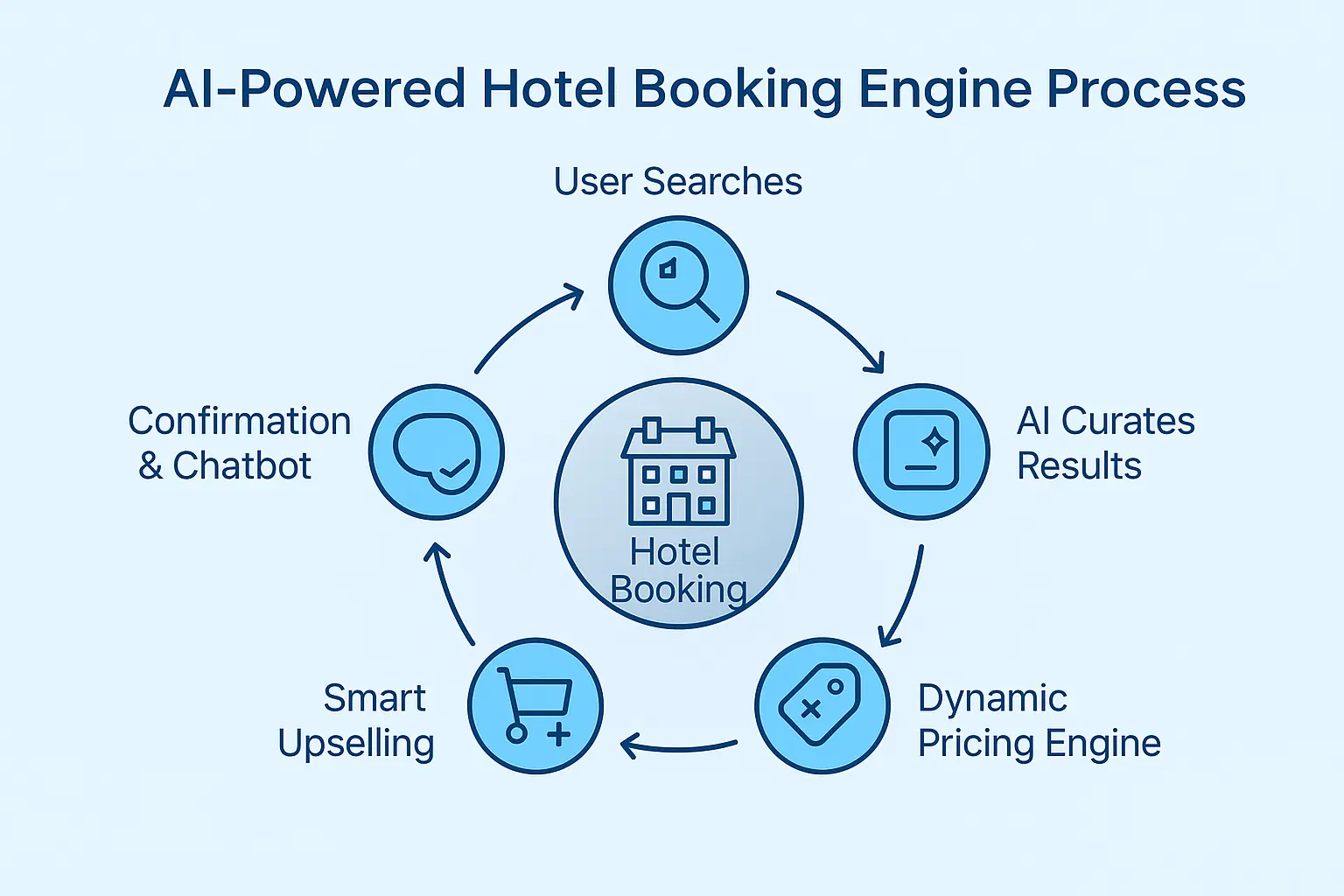
However, there’s more to it. Hotel API integration provides the necessary information for the AI systems to function properly by means of real-time data. The data is later optimized on the basis of users’ preferences.
When combined with existing hotel APIs, artificial intelligence can exchange data for insights, automations, and people-centric decision making. They provide a system that quickly changes with the latest market conditions and customer demand so that an online retailer may get real-time inventory, pricing, and multi-platform management.
AI algorithms work with real-time data from various sources through APIs. The company uses technology to manage inventory across e-commerce, brick-and-mortar outlets, and other channels. It uses software like that to help deliver goods in time.
Key Considerations When Implementing AI in Hotels
Now, there are a few things to be considered while getting started with AI in the hospitality industry. Let’s discuss this in more detail to give you a brief idea of how one can ensure the success of their central reservation system for hotels.
Phased vs. Full Deployment
Based on your requirements, you must choose an ideal approach to platform development. Moving forward, you’ll have two approaches, either to proceed with the phased development method or opt for full deployment.
In this scenario, it’s better to go with a phased development methodology as it allows you to gradually introduce AI features to your audience, based on the response, you further optimize it as per your business needs. Full deployment is simpler and faster, but can be riskier.
Integration with Legacy Systems
Another pesky challenge is to integrate your hotel booking system with legacy systems. This is where you try to integrate different systems, like a property management system, channel manager, and online travel agencies (OTAs), into a unified platform.
The best way around this problem is to opt for an API that allows you to merge local suppliers and popular GDSs without any hassle. This way, you will be able to improve both the efficiency and guest experience of your hotel booking platform.
Data Security & Guest Privacy
To ensure that you’ll responsibly handle the customer data, your platform must comply with industry regulations like CCPA, GDPR, PCI-DSS, etc. This is crucial to build trust among users in terms of data security and guest privacy.
By implementing strong encryption measures, firewalls, and passwords, travel businesses can ensure that their platform will be able to protect sensitive data from fraudsters. If hotels, OTAs, and agencies manage to achieve it, they will be able to win customers more easily.
Cost vs. ROI
Once things kick off for your platform, it’s important to evaluate investment against potential automation and guest retention gains for the hotel booking engine. This crucial factor will determine the success of your platform.
Remember that the potential ROI should be carefully assessed to ensure the investment aligns with business goals. A higher ROI indicates that the system will generate more revenue and/or save more money than it costs to operate, making it a more valuable investment.
Staff Training and Change Management
AI in hotels is not meant for everybody. To ensure your business admins can make the most of it, schedule end-to-end training programs that teach them to utilize the complete potential of artificial intelligence in hotels.
Mandatory training equips staff with the necessary skills to use the system and understand procedures, while change management helps integrate new technologies and processes. Overall, this is a crucial step to take care of customer needs for a better experience.

The OneClick Advantage: Smart AI Solutions for Hotels
At OneClick, we specialize in building AI-powered ecosystems for hospitality. Our services include:
- Tailored AI-powered hotel booking engines:
- Multilingual AI chatbots for 24/7 guest engagement
- deep api integration with OTAs, GDS, PMS, and CRMs
- dynamic revenue & loyalty management tools
- scalable & modular AI ecosystem
- GDPR and CCPA-compliant for secure data handling
- Sustainability-focused AI features
- Backed by proven travel tech expertise

Future-Ready Hotel Experiences Start with AI
The AI revolution is at an all-time high, and it’ll only grow bigger. For businesses to survive in this competitive market, they need to adapt to this new trend or else they’ll be left behind. From predictive analytics to real-time engagement, the adoption of AI enables hoteliers to stay agile, improve guest satisfaction, and maximize profitability. With OneClick, your hotel is not just prepared for the future, it leads it.
FAQs
Yes. Many AI solutions are scalable and modular, allowing smaller hotels to adopt features like chatbots or pricing tools without major investment.
While many AI services are cloud-based, some operate on hybrid models with offline capabilities for basic tasks.
AI enables the hotel booking engines to understand human behavior, market trends, and the ability to understand possible problems to make prompt decisions, which will help users find the best property.
The integration of AI tools in existing booking engines entirely depends on app complexity. It can take anywhere from a few days (for chatbots) to a few months (for full booking engine integration).


